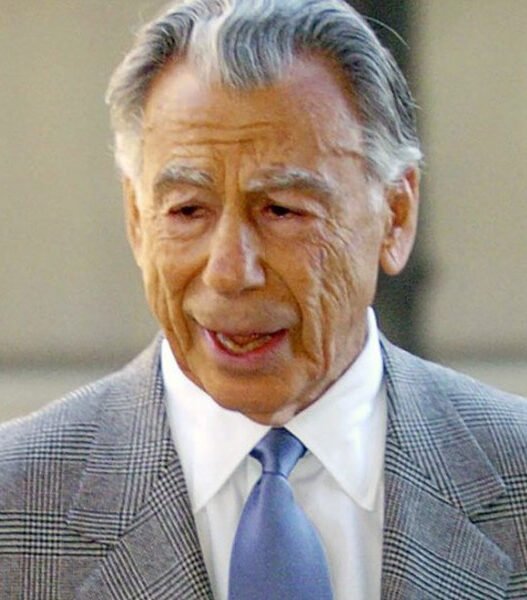Renowned American educator, theologian, and clergyman James L. Farmer Sr. (1886–1961) made first-ever contributions to African American education. Academic and ecclesiastical institutions were permanently changed by his work in theology and early religious history. Though less well known than his son’s involvement in the Civil Rights Movement, Farmer’s legacy was fundamental in determining the social and educational environment African Americans encountered in the early 20th century.
Early Life and Education
James L. Farmer Sr. was born on June 12, 1886, in Kingstree, South Carolina. Growing up in a setting where education was highly prized, but often difficult for African Americans, Pearl Houston, his mother, was a former teacher, so his own academic interests most certainly motivated by her. Farmer studied at Boston University, where he graduated in theology. He kept on his studies and finally graduated with a Ph.D. from Texas, first among African Americans.
Farmer’s academic path was defined by ambition as much as tenacity. In a time when Black people had restricted access to higher education, his achievements were revolutionary. Later on, his sophisticated theological and religious historical studies will help to define his work as a priest and teacher.
James L. Farmer Sr.’s Fatherhood: Farmer James:
James L. Farmer Sr. was the father of James Farmer, among the most well-known American Civil Rights Movement activist. James L. Farmer Sr. was born in Marshall, Texas, in 1920 and was instrumental in forming the morals and character of his son, who would subsequently be a major leader in the struggle for racial equality. James L. Farmer Sr. was a highly educated and cerebral guy who taught, ministered, and actively participated in social justice concerns. He had great impact on James Farmer’s viewpoint. James Farmer was motivated to lead a life committed to eradicating racial inequity and segregation having grown up in a home where action and knowledge were highly prized.
Lessons received from James Farmer’s father greatly influenced his leadership in the Civil Rights Movement. James L. Farmer Sr. taught his son social justice, pacifism, and the value of education. James Farmer carried further these ideas as the founding member of the Congress of Racial Equality (CORE) in 1942, confronting prejudice and segregation by nonviolent direct action. James L. Farmer Sr.’s support of his son’s activities was relentless; he was pleased with James Farmer’s achievements, especially his participation in the Freedom Rides and his attempts to abolish Jim Crow legislation. Although James Farmer established his name in history, much of his will and passion for justice may be found in the ideals his father, James L. Farmer Sr., instilled in him.
Career and Contributions
For much of his professional life, James L. Farmer Sr. worked in religious education and outreach. Serving in the Methodist Episcopal Church, South, he preached and guided next generations of leaders. Still, his achievements went beyond only religious establishments. Farmer also taught academically, mostly in the disciplines of early religious history and theology.
As a teacher, Farmer clearly shown his dedication to African American education. He was a theology professor at Wiley College in Marshall, Texas, among numerous other colleges. Historically Black Wiley College became to be among the top educational hubs for African American students at that time. Farmer’s efforts at Wiley served to define the college’s standing as a center of social transformation and intellectual brilliance.
His academic interests transcended the altar and classroom. Farmer, a historian, written a lot about African American history and the Black church. In trying to retrieve African Americans’ historical contributions—especially in religious settings—his studies were revolutionary. The scholarly and religious writings of farmers cleared the path for next Black generations of teachers and thinkers.
Family Legacy
James L. Farmer Sr. was a father to one of the most well-known Civil Rights Movement activists in addition to an intellectual and theologian. James Jr. born in 1920 rose to be a major player in the struggle for racial equality. One of the Congress of Racial Equality’s founding members, he was instrumental in planning the Freedom Rides, thereby confronting American South segregation.
Farmer Sr.’s impact on his son’s activism and schooling was great. James L. Farmer Jr. grew up in a home that gave social justice, intellectual stimulation, and education top importance. His own involvement in the Civil Rights Movement clearly reflected the commitment of his father to racial equality and intellectual brilliance.
Impact on African American Education
Work in African American education by James L. Farmer Sr. prepared the ground for a generation of leaders, activists, and academics. Farmer Sr. broke broken major racial boundaries in academia by being the first African American to graduate from Texas with a Ph.D. By serving as a teacher and instructor at colleges like Wiley College, he served to guarantee that African American students had access to top-notch education during a period when such prospects were rare.
Additionally offering a context for the expansion of African American religious research were farmer’s theological and intellectual contributions. His contributions to early religious history and his dedication to theological education helped to define the scholarly scene for next Black generations.
Death and Legacy
At seventy-four, James L. Farmer Sr. died on May 14, 1961, in Washington, D.C. His passing signaled the end of a lifetime committed to furthering social justice and education. Although Farmer Sr. was not as well-known as his son James L. Farmer Jr., his achievements were vital to the evolution of African American education and the more general struggle for equality.
The numerous academics, teachers, and activists still inspired by Farmer’s work today help to carry on his legacy. The history of American education and the Civil Rights Movement continues to depend critically on his commitment to academic achievement, social fairness, and African American empowerment.
The life of James L. Farmer Sr. offers evidence of the ability of religion and education to shape African Americans’ destiny and so further the American cause of equality. Though sometimes eclipsed by his son, his accomplishments set the foundation for the Civil Rights era’s social transformations.


















